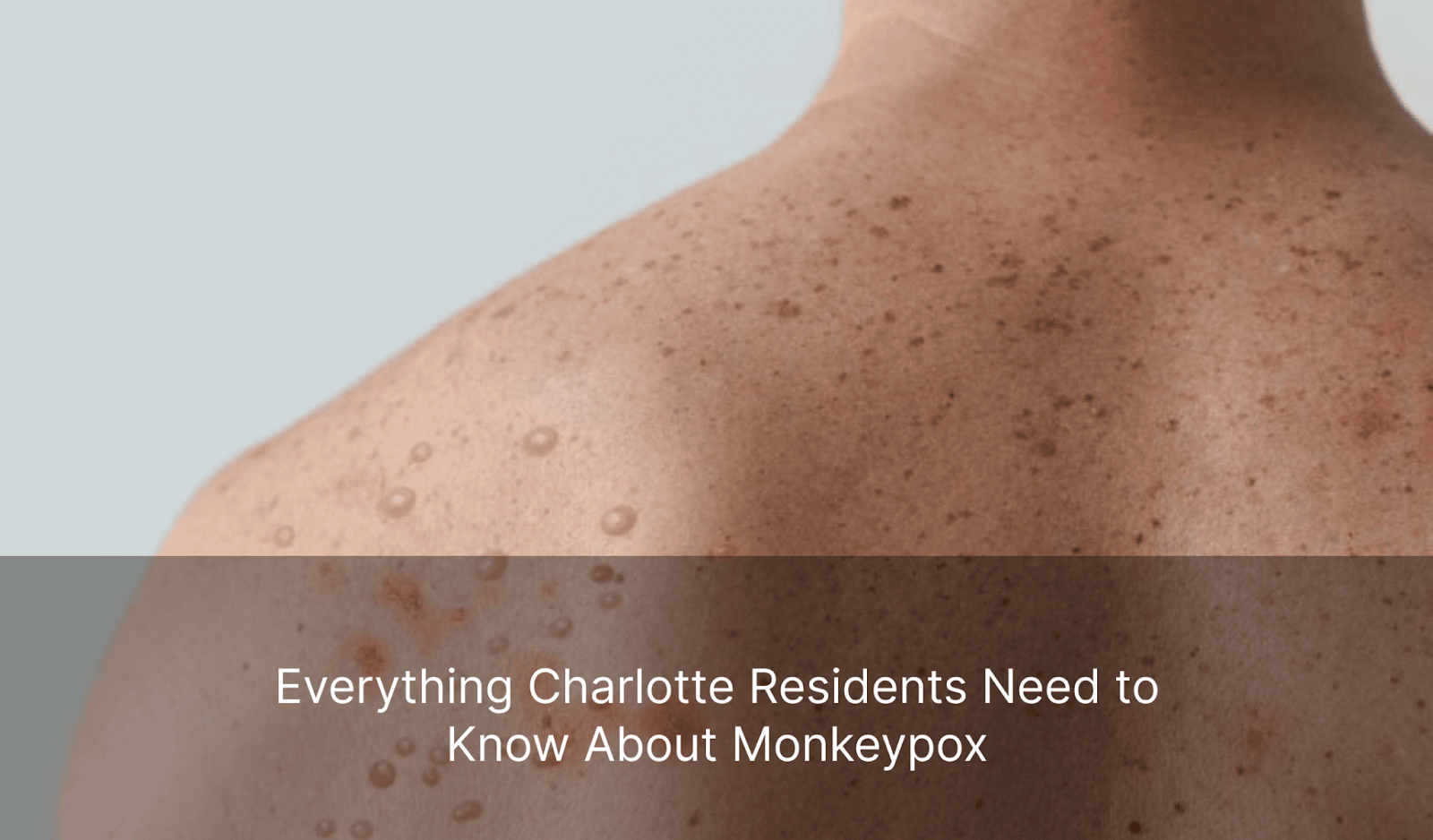Infectious diseases are as old as human evolution. Every decade seems to throw one or more contagious diseases in the face of humanity. The recent concerns about monkeypox have raised several questions about the virus.
These questions are expected, especially now that most countries have started relaxing COVID-19 restrictions imposed since 2020. Despite that, the seeming light at the end of the tunnel seems to be short-lived with the recent monkeypox outbreak.
Is this the beginning of another pandemic?
How do I know if I’ve been infected with the monkeypox virus?
So, what is the monkeypox virus and why is this unexpected outbreak causing so much concern and being represented on virtually every news channel? Read on to find out everything you need to know about this recent outbreak.
What Is Monkeypox?
Just like many infectious diseases, monkeypox is a viral disease that is caused by the monkeypox virus, a member of the Orthopoxvirus genus in the family Poxviridae. Typically, monkeypox occurs in the rural areas of central and west Africa. However, on July 23, 2022, monkeypox became a global health emergency, as declared by the World Health Organization (WHO).
A Brief History of Monkeypox
Monkeypox was first discovered by medical experts during an outbreak in 1958. The first human case of monkeypox disease was recorded in 1970 in the Democratic Republic of the Congo (DRC). Interestingly, the first time a monkeypox case was registered, it was in a time of augmented effort to get rid of smallpox.
Back to the question, why are many concerned right now?
For decades, the monkeypox virus has only been reported in Central Africa and West Africa, but as of the time of publishing this article, there have been more than 48,000 confirmed cases of the monkeypox virus in over 99 different countries beyond the African continent.
Prior to this, the monkeypox virus was reported in the United States in 2003. This came from a shipment of giant pouched rats that were infected with the monkeypox virus. Reports later confirmed that these rats were imported to Texas from Ghana.
How Does Monkeypox Spread?
Monkeypox virus usually spreads through direct contact with infected persons through their rash, scabs, or body fluids. It can also spread through intimate physical contact such as touching, cuddling, kissing, and sexual intercourse.
Signs & Symptoms of Monkeypox Disease
Experts assert that the symptoms of monkeypox are similar to those of smallpox. But the symptoms are milder than those of smallpox. Commonly encountered symptoms include fever, headache, exhaustion, muscle aches, and more.
In the first few weeks of infection, there is usually a development of a rash on the face, which then spreads to the other parts of the body. Other symptoms of monkeypox infection include fever, headache, swollen lymph nodes, and exhaustion.
Sometimes, infected persons may experience respiratory symptoms, such as cough, sore throat, and nasal congestion. With close monitoring, medical experts suggest that it resolves on its own within 2-4 weeks.
 For more information on monkeypox, please download and refer to this quick reference guide.
For more information on monkeypox, please download and refer to this quick reference guide.
How to Know if You Have a Monkeypox Infection
Since the signs and symptoms of monkeypox overlap with that of other viral infections such as COVID-19 and smallpox virus, the best way to determine if you have monkeypox is to be tested. If you experience symptoms or have been exposed, then you should get tested for monkeypox.
Some testing sites such as Labcorp, Aegis Science, Mayo Clinic Laboratories, Quest Diagnostics, and Sonic Healthcare provide monkeypox tests. If your test result is positive, we recommend that you stay isolated until your rash is healed, all scabs have fallen off, and a fresh layer of intact skin has formed.
Can Monkeypox Be Treated or Cured
Experience from the COVID-19 outbreak in 2020 threw the world into a web of uncertainties. At the beginning of the COVID-19 pandemic>, the virus was relatively new. There were no therapeutics or vaccines, and scientists had little to no understanding of the behavior of the virus.
The entire world was unprepared for a pandemic. Thankfully, vaccines were deployed quickly to contain the spread of the virus.
Fortunately, the case is different for monkeypox. We’ve known about monkeypox for over 60 years. There are vaccines, and healthcare practitioners such as nurses and pharmacists have a lot of experience dealing with the virus.
Although there are currently no specific treatments for the monkeypox virus infection, most monkeypox cases resolve on their own within 14 days to 28 days. Additionally, due to the genetic similarity of the monkeypox virus and the smallpox virus, available antiviral drugs that are currently in use to treat smallpox may also be used to treat monkeypox infections.
Moreover, given our experience with the monkeypox outbreak in the 1970s, we know what to expect. Hence, we can predict what is likely to happen and then prepare for any likely unprecedented event.
How to Keep Yourself Safe in Charlotte
One of the best ways to protect yourself from getting infected with monkeypox is to follow recommended safety guidelines. Here are simple tips to keep yourself and your family safe:
- Avoid close contact with persons who have a rash or show other symptoms which are typical of monkeypox.
- Avoid sharing utensils or other materials with individuals who have monkeypox or show symptoms that are similar to that of monkeypox.
- Wash your hands often.
Contact Us for More Information About Monkeypox in Charlotte, Lancaster, & Rock Hill
Our mission at Carolina Pharmacy is to keep you and your family safe during these trying times by providing safety guidelines and health tips. Feel free to contact us for more information about Monkeypox in Charlotte, Lancaster, and Rock Hill



